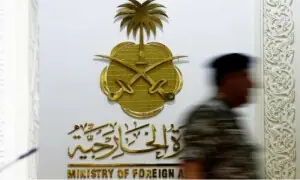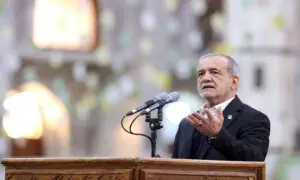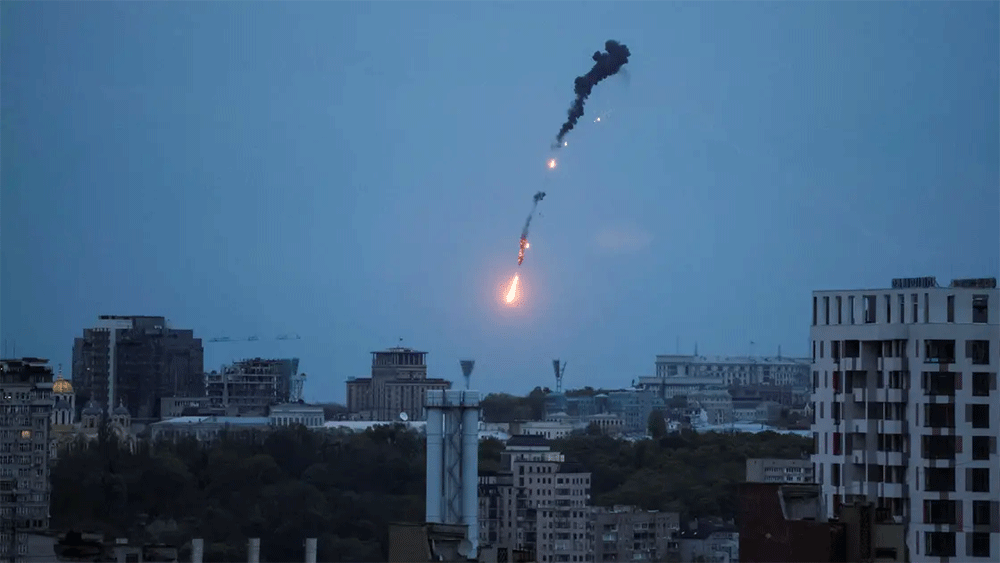Pakistan secures over $10b in pledges at Climate Resilience Conference
6 min readGENEVA: International donors on Monday committed over $10 billion to help Pakistan recover from ruinous floods last year, exceeding its external financing goals and paving the way for a new model on raising funds to fight climate disasters in poorer countries.
Officials from some 40 countries as well as private donors and international financial institutions gathered at a meeting in Geneva as Islamabad sought funds to cover around half of a recovery bill amounting to $16.3 billion.
The meeting’s co-hosts, the United Nations and Pakistan’s government, said more than $10 billion had been pledged from bilateral and multilateral partners.
Among the donors were the Islamic Development Bank ($4.2b), the World Bank ($2b), Saudi Arabia ($1b), Asian Infrastructure Investment Bank ($1b), Asian Development Bank ($1.5b) as well as the European Union and China, Information Minister Marriyum Aurangzeb said.
France, the United States, the United Kingdom, Germany, Japan, and Azerbaijan also made contributions.
Prime Minister Shehbaz Sharif thanked heads of the international donors and the United Nations for making Resilient Pakistan Conference a “resounding success”.
“UN Secretary General has shown stellar leadership all along. People of Pakistan will forever remain grateful,” he said in a Twitter thread.
“Today has truly been a day which gives us great hope,” said Hina Rabbani Khar, Pakistan’s minister of state for foreign affairs. “I think the message from the world is clear: the world will stand by those who go through any national calamity.”
Achim Steiner, the United Nations Development Programme Administrator, characterised the outcome of the conference - where pledges exceeded Pakistan’s goal - as “quite unusual”, saying that donor pledges often fell short of objectives.
UN Secretary General Antonio Guterres thanked the international community for making pledging at the conference in support of Pakistan’s flood recovery efforts.
“I thank the international community for this example of solidarity in action.”
Waters are still receding from the floods caused by monsoon rains and melting glaciers that killed at least 1,700 people, displaced around 8 million and destroyed key infrastructure.
In his address, the UN chief called for “massive investments” to help Pakistan recover from last year’s devastating floods, saying it was “doubly victimised” by climate change and a “morally bankrupt global financial system”
“No country deserves to endure what happened to Pakistan,” UN chief told an international conference in Geneva, which is seeking billions of dollars to support recovery from the disaster.
The money has been pledged by various donors with Islamic Development Bank (IDB) being the largest contributor. It announced $4.2 billion. The World Bank will provide $2 billion and Asian Development Bank (ADB) $1.5 billion. Individual countries have also pledged aid with the United States and China announcing $100 million each.
In a video message, France President Emmanuel Macron said Paris was ready to support Pakistan in talks with creditors and pledged $10 million in additional aid support.
France will continue to provide expertise and some financial support to the country, Macron said in a video address as Pakistan and the United Nations held a conference in Geneva aimed at marshalling support to rebuild the country.
“Climate disaster of monumental scale”
United Nations’ Development Programme Administrator Achim Steiner said the next phase of the Pakistan response represented a “monumental moment of reckoning for the entire world”.
The floods, blamed on climate change, dealt a severe blow to Pakistan’s strained economy while displacing some 8 million people and killing at least 1,700. Rebuilding efforts are now estimated to cost more than $16 billion.
Pakistan’s Foreign Minister Bilawal Bhutto Zardari, who attended with Prime Minister Shehbaz Sharif, called the floods “a climate disaster of monumental scale”.
Eight million people were displaced, millions of acres of agricultural land were ruined and around two million homes destroyed, while nine million more people were pushed to the brink of poverty.
“We must match the heroic response of the people of Pakistan with our own efforts and massive investments to strengthen their communities for the future,” he said.
Appeal for over $16 billion
The UN chief hailed how Pakistan and its people had responded to “this epic tragedy with heroic humanity”.
“We must match the heroic response of the people of Pakistan with our own efforts and massive investments to strengthen their communities for the future,” he told the conference.
According to Pakistan’s so-called Resilient Recovery, Rehabilitation and Reconstruction Framework, which it will officially present during Monday’s conference, it will need $16.3 billion.
Pakistan’s government has said the country should be able to cover half the cost, but is asking the international community to fund the rest.
“This is the greatest climate disaster in our country’s history,” Bilawal told the conference, decrying a “colossal calamity.”
“Pakistan will need considerable support over the next several years from our international partners to implement this comprehensive plan,” he said.
The UN chief said the international community had a particular responsibility to help Pakistan, which has been “doubly victimised by climate chaos and a morally bankrupt global financial system.”
He slammed a system that “routinely denies middle-income countries the debt relief and concessional financing needed to invest in resilience against natural disasters.”
Around 450 participants from some 40 countries had registered for Monday’s event.
Additional funding is crucial to Pakistan amid growing concerns about its ability to pay for imports such as energy and food and to meet sovereign debt obligations abroad. Pakistan’s finance minister will meet an International Monetary Fund delegation on the sidelines of the Geneva meeting.
‘$30b of losses’
Prime Minister Shehbaz Sharif called for a new “coalition of the willing”, saying it needed $8 billion over the next three years. Islamabad will provide the rest.
“I am asking for a new lifeline for people who need to power our economy and re-enter the 21st century with a future that is protected from such extreme risks to human security,” he told the meeting.
But big questions linger over where the rest of the funding will come from, with the initial emergency phase of the disaster response less than half funded, according to UN data.
Pakistan was at the forefront of efforts that led to the establishment of a “loss and damage” fund to cover climate-related destruction at COP27 in Egypt, but it is not yet clear if it will be eligible.
PM Shehbaz Sharif said that total losses from floods were estimated at over $30 billion, which is 8% of Pakistan’s GDP.
“The gap for minimum recovery is $8 billion which is needed over the next years,” he said in his address. The premier described the sustained international support from the world as a “new lifeline”.
Pakistan’s government aims to cover half that amount with “domestic resources”, including its development budget and through public-private partnerships.
Pakistan remains committed to its international obligations: Dar
Finance Minister Ishaq Dar said Pakistan remained committed to its international obligations and was on track regarding its macroeconomic fiscal reforms agenda which, he said, focused on increasing revenues, spending on social sector programmes, decreasing expenditure, and creating more fiscal space for reconstruction and rehabilitation phase. The country would undertake this in the next three years.
“Pakistan is facing challenges on account of additional outlays, incurred and projected for the flood-related rescue and rehabilitation needs,” he said in his address. “Existing limited space negatively impacts Pakistan’s ability to provide resilience and determination to all those affected by the national disaster.
Pakistan was carrying out the necessary fiscal reforms, however, the country urgently needed short-term assistance as it navigates a number of challenges, the finance czar added.
“Our urgent expectation is not merely a commitment for resources but we are also looking at our own budget inflows and assistance during the remainder of the current fiscal year in order to make it possible for the government to continue to providing much needed relief.”
For the latest news, follow us on Twitter @Aaj_Urdu. We are also on Facebook, Instagram and YouTube.
































Comments are closed on this story.